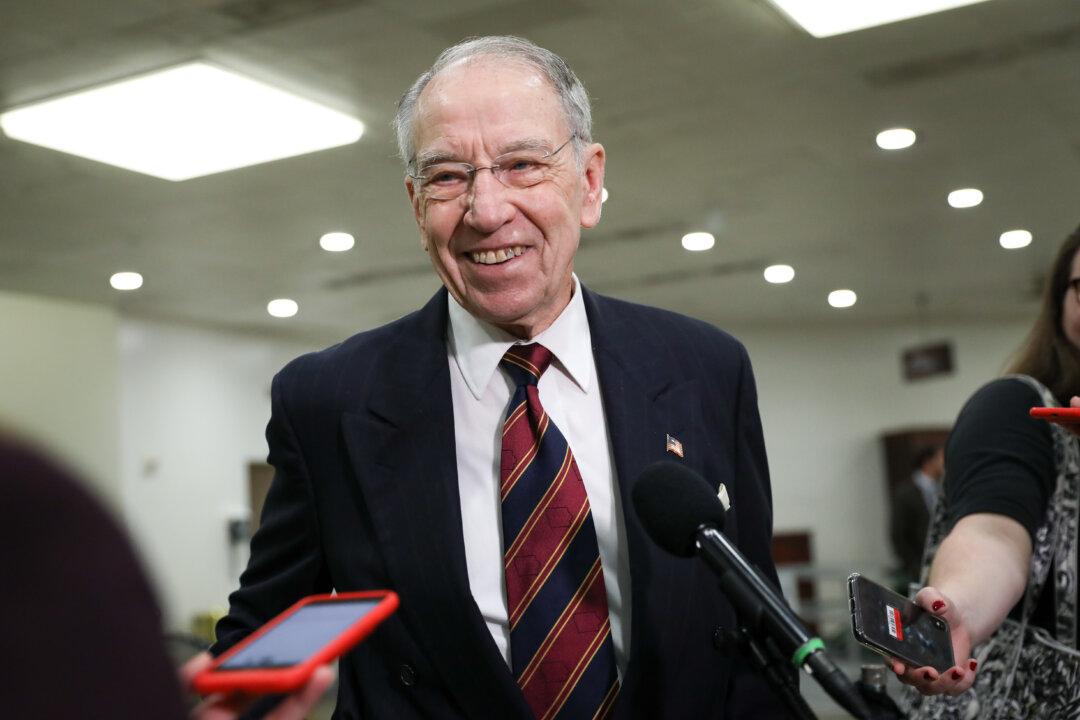WASHINGTON—Senate Finance Committee Chairman Chuck Grassley (R-Iowa) believes the revised proposal he and co-sponsor Sen. Ron Wyden (D-Ore.) hope to reintroduce later this week is the best bet in 2020 for Congress to act against spiraling prescription drug costs.
“The thing to remember about this bill is when you’ve got [Speaker of the House Nancy] Pelosi passing her bill, she has a different body of people she has to deal with,” Grassley told The Epoch Times on March 10.





